We are still packaging everything in our Bulk Departments so that you may purchase the products you like without the plastic! The Natural Grocery Company is committed to using packaging that protects your food and does not contribute to more plastic waste. We use NatureFlex TM to pack all our Bulk Items. Our resilient workers at The Annex prepare these items for sale in our facility. Items are then transferred to our stores as needed. Thank you for your continued support!
Cult Crackers – Our Newest, Local Food Crush
Small batch, handmade, organic crackers made in Berkeley?
Yes please!
That’s exactly what Cory (long time employee of Berkeley Natural Grocery) said to Birgitta when she told him about her made-from-scratch crackers crafted from a Swedish friend’s recipe.
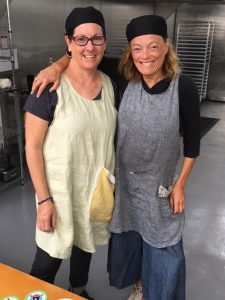 Birgitta is a long time (30 + years) shopper at our Berkeley store. For years, she bought the same superfood ingredients from our bulk bins. After chatting and recipe sharing with staff, she brought the team at Berkeley Natural (BNG) samples of her crackers. They were hooked. Birgitta and her partner Dianna credit Cory and the BNG team with inspiring them to start their small business.
Birgitta is a long time (30 + years) shopper at our Berkeley store. For years, she bought the same superfood ingredients from our bulk bins. After chatting and recipe sharing with staff, she brought the team at Berkeley Natural (BNG) samples of her crackers. They were hooked. Birgitta and her partner Dianna credit Cory and the BNG team with inspiring them to start their small business.
The recipe originated with Birgitta’s friend in Sweden whose daughter is a very picky eater. When she finally discovered a winning combination that even her daughter appreciated, she shared it with Birgitta. While Birgitta and Dianna have altered the recipe a bit (most dramatically dropping the olive oil in favor of coconut oil), the Swedish roots are strong.
The flower on the label is a traditional Swedish decoration.  Their label and logo designer lives on an island in the Baltic Sea between Sweden and Finland. The heritage (and inspiration) for these crackers points back to the majestic northern lands of the Baltic.
Their label and logo designer lives on an island in the Baltic Sea between Sweden and Finland. The heritage (and inspiration) for these crackers points back to the majestic northern lands of the Baltic.
Cracker culture in Sweden is endless, with entire aisles dedicated to the craft. Everybody buys and bakes crackers. People commonly eat crackers with every meal whether paired with pickled herring, caviar, cheese, smoked meat, gravlax or soup.
The key to Birgitta’s leap into full time cracker production happened while selling Swedish ovenware. She was going to product shows and would bring her crackers along for snacks and meals. Everybody wanted the crackers more than the ovenware. With that nudge and the continued encouragement from Cory and the Berkeley Natural Team, Birgitta teamed up with Dianna (who has a culinary degree) to forge what is now Cult Crackers.
 Together, they met the folks at Muffin Revolution and subleased kitchen space from them. That afforded them the chance (in a certified gluten-free kitchen) to produce more volume and become a registered business. When Muffin Revolution outgrew the space, they offered the lease to Cult Crackers. While it was a big jump, they accepted. And thank goodness they did!
Together, they met the folks at Muffin Revolution and subleased kitchen space from them. That afforded them the chance (in a certified gluten-free kitchen) to produce more volume and become a registered business. When Muffin Revolution outgrew the space, they offered the lease to Cult Crackers. While it was a big jump, they accepted. And thank goodness they did! 
These two ladies started their official Cult Cracker journey in June. Berkeley Natural Grocery was store number one, and now they are in ten stores throughout the Bay Area!
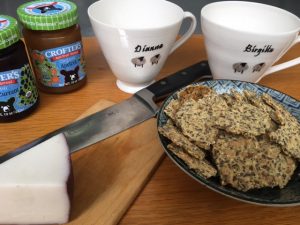 The crackers are delightful. At their kitchen, we snacked on them with Mitica Drunken Goat cheese and Crofters Jam. With a box to take home, I shared the crackers with my five year old son (and felt great about it!). He loved them with butter and salami.
The crackers are delightful. At their kitchen, we snacked on them with Mitica Drunken Goat cheese and Crofters Jam. With a box to take home, I shared the crackers with my five year old son (and felt great about it!). He loved them with butter and salami.
We are so excited to carry their crackers at both stores so that you can try them sometime soon!
Extra Virgin Olive Oil – Burroughs Family Farms
Burroughs Family Farms – Extra-Virgin Olive Oil
We recently started selling Burroughs Family Farms organic, non-GMO, cold-pressed extra-virgin organic olive oil [aka EVOO]. This exemplary family-owned farm, situated in the Sierra foothills below Yosemite, is one of our favorite regional producers. We already source quality pastured eggs, organic cheese, and almonds from their property. The Burroughs Family Olive Oil is a blend of Arbeqina, Arbosana and Gretchenina olives (originally from Spain). The oil has a pleasant fruitiness with hints of grassy undertones. It is very versatile and may be used in sauces, salad dressings, as a topping to bread and for low heat cooking.
Here is what Burroughs Family Farms says about their oil:
Our olives are first cold-pressed at temperatures that do not exceed 80 degrees F. This protects the polyphenols, antioxidants, and vitamins that give the oil its nutritional value and its aroma and flavor.
Why extra-virgin olive oil?
- EVOO is known to contain stronger concentrations of phytonutrients (especially polyphenols) that have well-known anti-inflammatory properties
- EVOO supports blood vessels not only by providing antioxidants like vitamin E and beta-carotene, but also also providing unique molecules like HT that actually work at a genetic level to help the cellular walls of the blood vessels remain strong.
- Cholesterol lowering and blood pressure lowering benefits of monounsaturated oil (olive oil contains 75%)
High quality extra virgin olive oil has a smoke point of around 405ºF (191ºC), making it ideal for lower temperature cooking such as light sautés and non-cooked uses such as dressing salads and dipping bread. Such uses protect the nutritional value and beneficial qualities of the oil.
Why California Olive Oil?
As with wine, it has taken years for people to discover that some of the world’s finest olive oils are produced in California. Our family owned and operated farms rest on the rolling hills near Yosemite National Park, where the combination of the moderate Mediterranean climate with good soils and water grows some of the world’s finest quality olives.
Buying California olive oils vs. imports supports our farm economy, and California olive oils have a lower carbon-footprint because their shipping distance is much shorter than that of imports.
Conservation on our farms
Ours is not the easiest way to grow olives, but we think it’s best for our land and for our family who lives and works here. From organic production to state-of-the-art irrigation systems, we do whatever we can to protect air, soil, and water from herbicides, pesticides, petrochemical nitrogen fertilizers, and genetically-modified organisms. All that, plus our hedgerows of native plants support the health of native species and bees who have the most important job – the pollination of the olive flowers.
We do it for the future of our farms. For you, it’s deliciousness and more.
Burroughs Family Olive Oil is certified annually by the California Olive Oil Council (COOC). Year after year it’s labeled “extra-virgin” by the council. To get the seal the oil is lab tested and 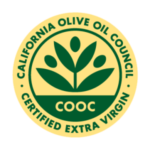 undergoes a critical analysis by an expert panel. The trained sensory panel (think of these people as the sommeliers of olive oil) ensure that the oil is free of defects in flavor or odor. In the U.S., many oils are labeled “extra-virgin” but do not undergo any such testing.
undergoes a critical analysis by an expert panel. The trained sensory panel (think of these people as the sommeliers of olive oil) ensure that the oil is free of defects in flavor or odor. In the U.S., many oils are labeled “extra-virgin” but do not undergo any such testing.
It’s Raining, It’s Pouring…


Slow Cooking – Groats
Whole Groats

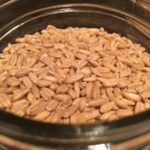 While shopping in our El Cerrito store bulk section, I was tempted to try the organic oat groats instead of the rolled oats. I was both inspired by the current sale price ($1.19/lb) and want the healthiest option for our five year old son. Our bulk buyer, David gave me another reason. He said, “why not eat things as close to the way mother-nature produced them as possible.” I can’t argue with that logic so I bought a bulk bag of groats.
While shopping in our El Cerrito store bulk section, I was tempted to try the organic oat groats instead of the rolled oats. I was both inspired by the current sale price ($1.19/lb) and want the healthiest option for our five year old son. Our bulk buyer, David gave me another reason. He said, “why not eat things as close to the way mother-nature produced them as possible.” I can’t argue with that logic so I bought a bulk bag of groats.
Here’s what I did to process the groats:
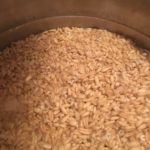
1 cup of groats in 3 cups of water
Before bed, I put one cup of groats in a heavy bottom stainless steel pot along with three cups of water.
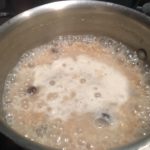
Simmering groats
In the morning, I turned the burner on medium heat and started cooking in the same pot where I soaked the grains.
Every 10 to 15 minutes, I checked the pot and stirred. 30 minutes into cooking, the groats were sticking to the bottom of the pot so I added more water (1 cup). I also added ¼ cup of raisins, a pinch of salt and a dash of cinnamon. 20 minutes later I added another 1/4 cup of water because the water was nearly absorbed. The groats cooked for a total of 1.5 hours. I added additional water (1/4 cup) another three times during the cooking process.
If you cook groats at home, add water as you see fit. It takes a lot to overcook groats but very little to burn them when there is not enough water in the pot. In other words, keep ’em hydrated.

Toppings: pecans, maple syrup and whole milk

Hearty Breakfast
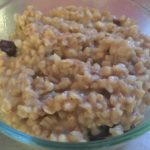
Leftovers – tomorrow’s breakfast!
The groat cooking process took longer and required more attention than the rolled oats. However, the nutritional benefits make the extra time worth it (when time allows!). For hurried mornings, consider cooking a larger batch. Soak the groats before heading off for your day, cook them in the evening and re-heat them with a little extra water and/or milk in the morning. Or, make enough for leftovers every time you prepare groats.
Why Eat Oat Groats? Here’s what one of our wholesalers (Hummingbird Wholesale) writes about this wonder grain:
Organic Oat Groats are whole oats with only the outer husk removed.
In general, oats have more protein and healthy fats, and less carbohydrates than most other whole grains. This grain is high in beta-glucans, which work to stimulate the immune system. They contain more soluble fiber than any other grain, and oats are also beneficial for their anti-oxidant, anti-inflammatory, and anti-itching qualities.
Sounds like a great food if you ask me! Here’s to your morning meal!
Congratulations to St. John’s Family Farm – Now Non-GMO Verified!
St. John’s Family Farm was founded in 2006. They are located about 40 minutes from Chico and 1 1/2 hours from Sacramento. Their farm is tucked away on a quiet country road, surrounded by nut trees.
Their hens are all pasture raised, free to explore, chase bugs and snack on hearty green grasses. Three times a day, they are served freshly mixed (corn and soy) Non-GMO feed. In their spacious mobile coops, they lay beautiful brown eggs and roost for the evening. It’s pretty bucolic.
Recently they went through the process of becoming Non-GMO verified. And we are thrilled with their new certification! Same tasty eggs, newly verified.
When we visited the farm, it was easy to tell why these eggs are so delicious and why the yolks are so intensely flavorful. The hens roam in wide open spaces, are gently treated by the staff and family and kept safe (mostly from foxes) by some amazing (and cute) guard dogs.
Try their eggs next time to stop by our stores and help support an amazing family and their animals by purchasing delicious eggs! 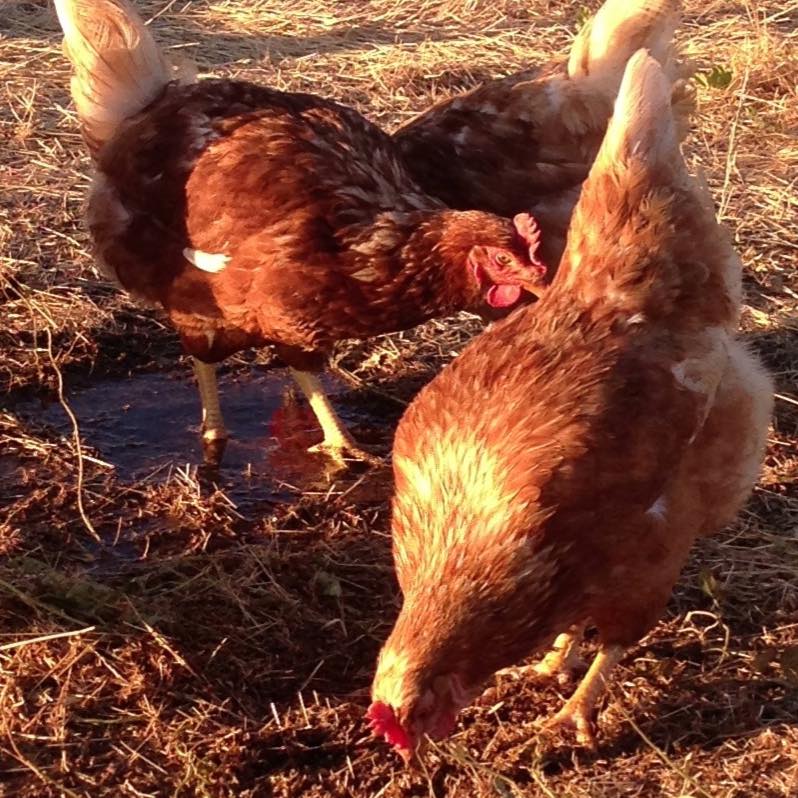
Dry Farming
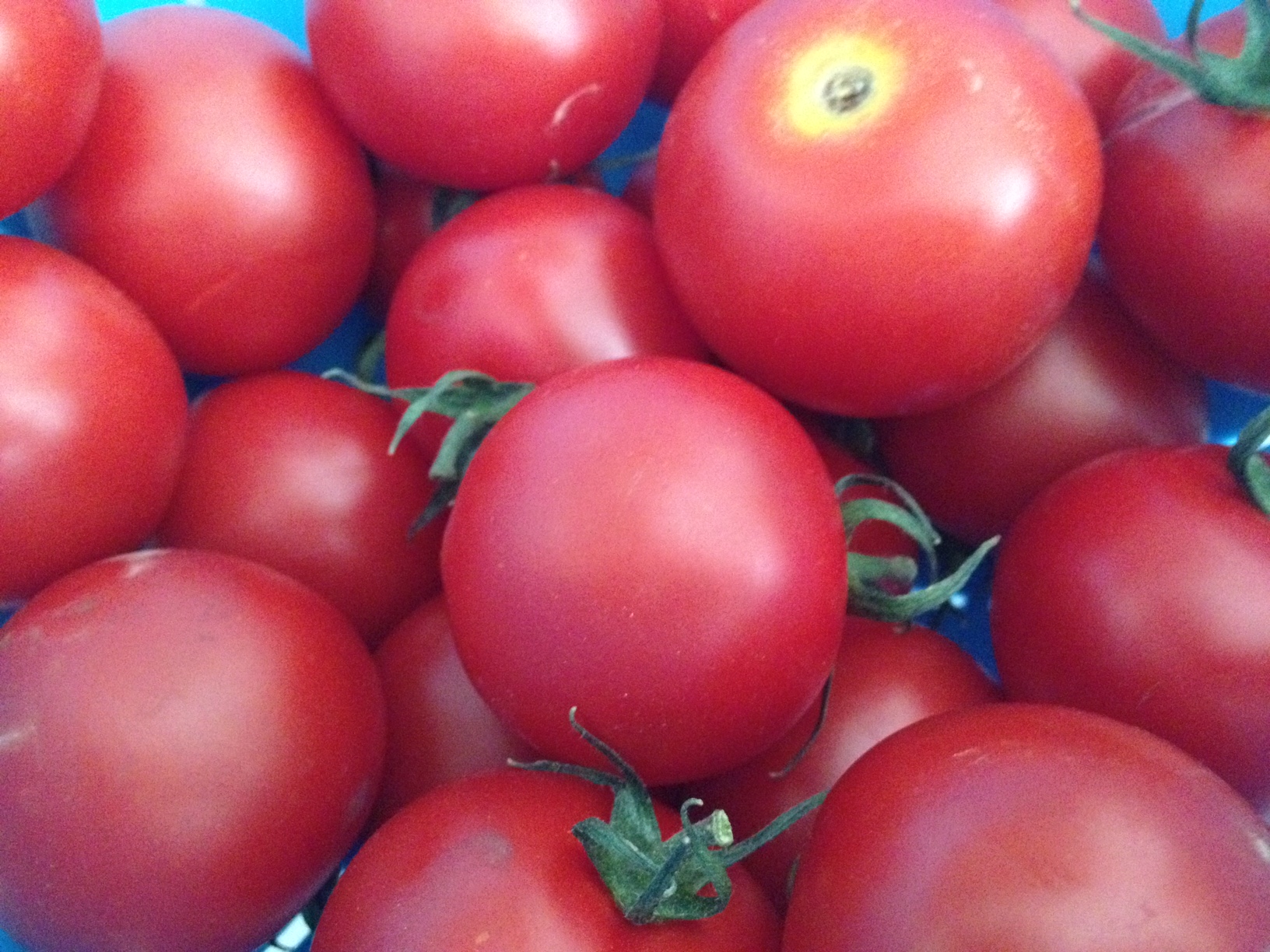
Every summer our customers and employees anxiously await the arrival of the best tasting tomatoes we have all year. The Dry Farmed Early Girl. But what is dry farming and why do these tomatoes taste so much better than the others? Dry farmed tomatoes are planted during the last rains of spring and never watered again. Their root systems go deep (up to 30 feet) into rich organic earth to get water. This extensive root system also picks up extra minerals, thus creating a very flavorful tomato. Dry farming is all about conserving and retaining soil moisture to support the crops without supplemental irrigation. A drawback is that dry farming creates smaller yields to those crops grown using irrigation, but the flavors can’t be beat! Dry farmed tomatoes are usually smaller because the plant spends a lot of it’s growth potential on it’s root system. This causes the plant to produce an intensely flavored, meaty tomato.
There are also environmental benefits to dry farming. Dry-farmed growers are reducing water use by not irrigating. Further, as water resources in California become scarcer and more strictly regulated, growers will also find themselves exempt from these water regulations, since they are not using irrigation water, or, in most cases, water for frost protection. Dry farming is the way crops were grown in the United States more than 100 years ago. Tomatoes are also not the only crop that are dry farmed. Right now we have local Dry farmed Macintosh apples from Watsonville and a great selection of dry farmed wines at the Annex! Among these are 3 wines from Yamakiri Vineyards here in California. Papillion de Nuit, a Syrah, is grown on the Mendocino ridge. Yamakiri Sauvignon Blanc is grown in the Yorkville Highlands and the Yamakiri Rose is grown in the Anderson Valley. There is also a dry farmed, Biodynamic wine at the Annex right now. Enrique Mendoza’s La Tremenda is grown in Alicante, Spain.
Come on down to The Natural Grocery Company and stock up on all of our dry farmed goodness! Remember, dry farming = great flavors!
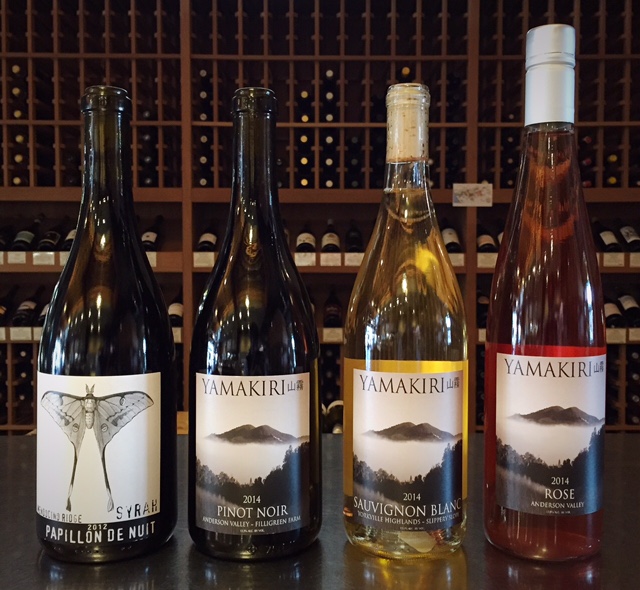
By, Casey Goode, ECNG Produce Manager
Bob’s Coffee Adventures
Bob Gerner (founder of our company) recently took a trip to Peru. He celebrated his birthday in the highlands where he participated in a coffee tasting/auction, harvested coffee cherries and attended a wedding. Quite a journey! We hope you enjoy the images.
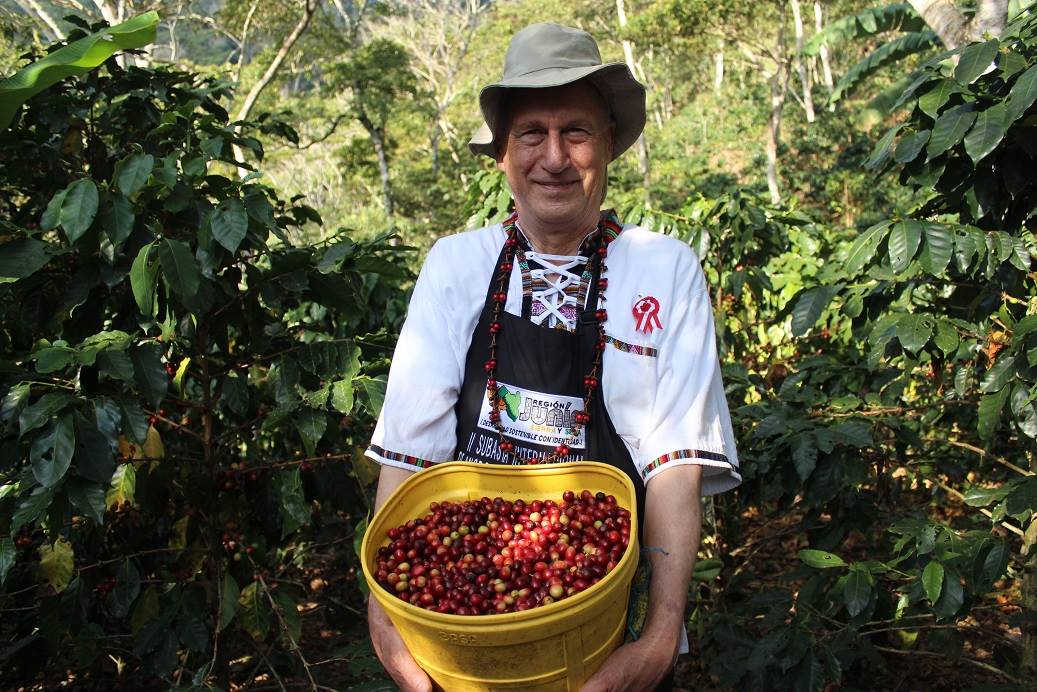

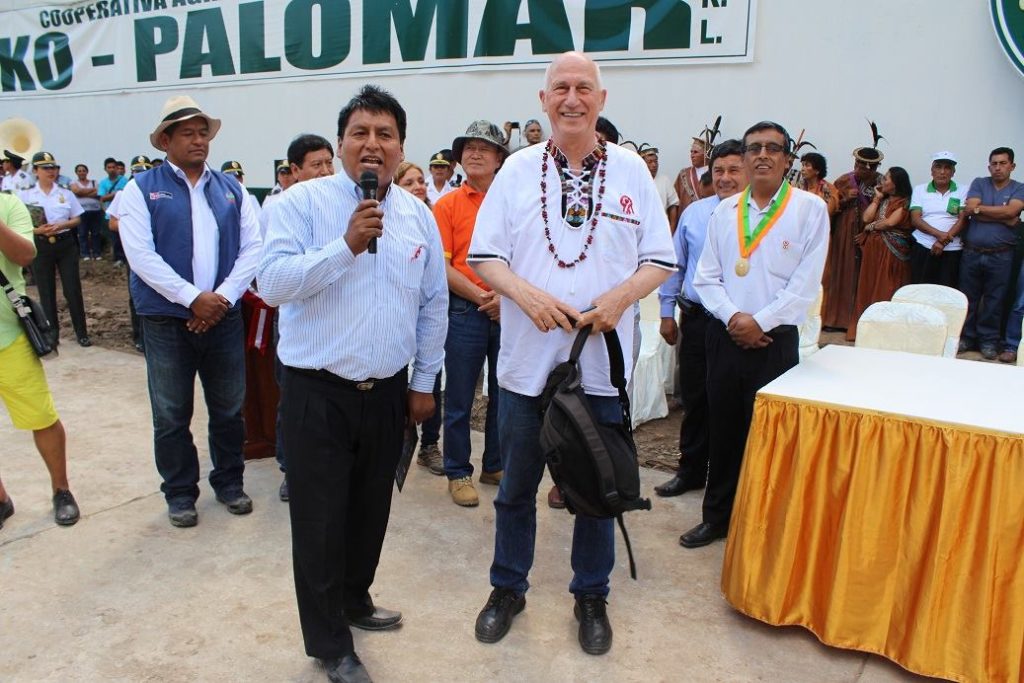
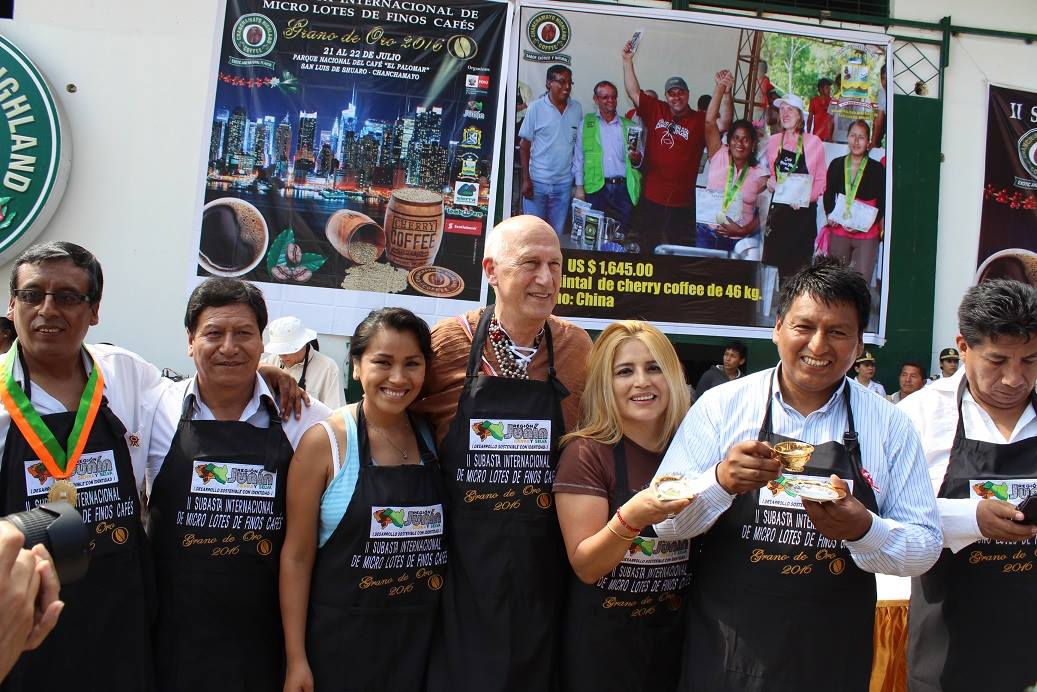
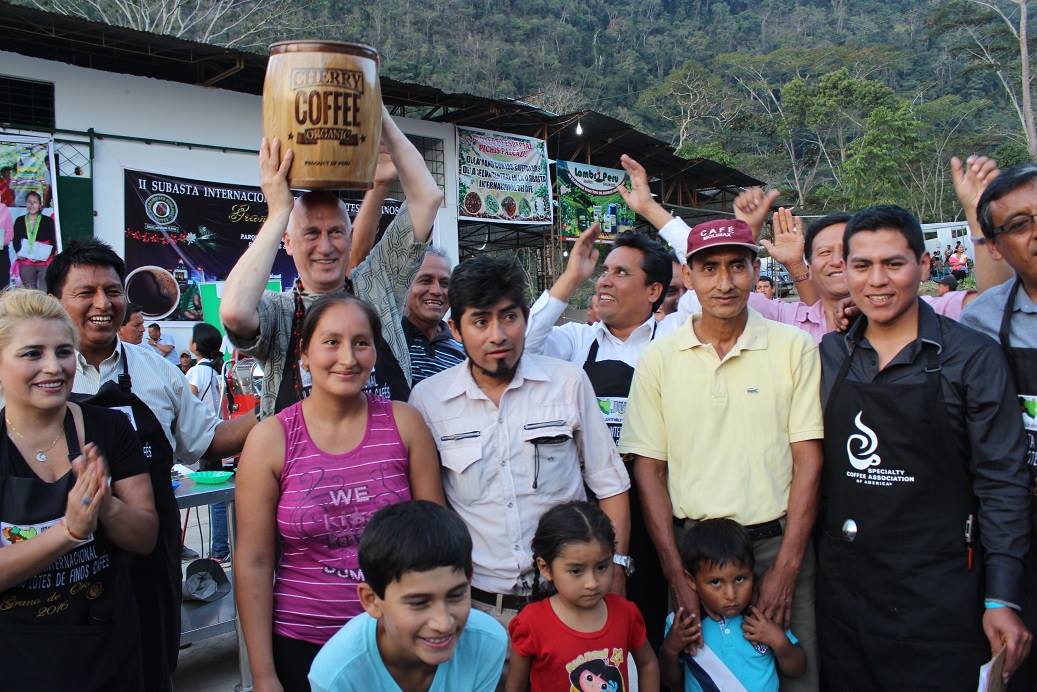
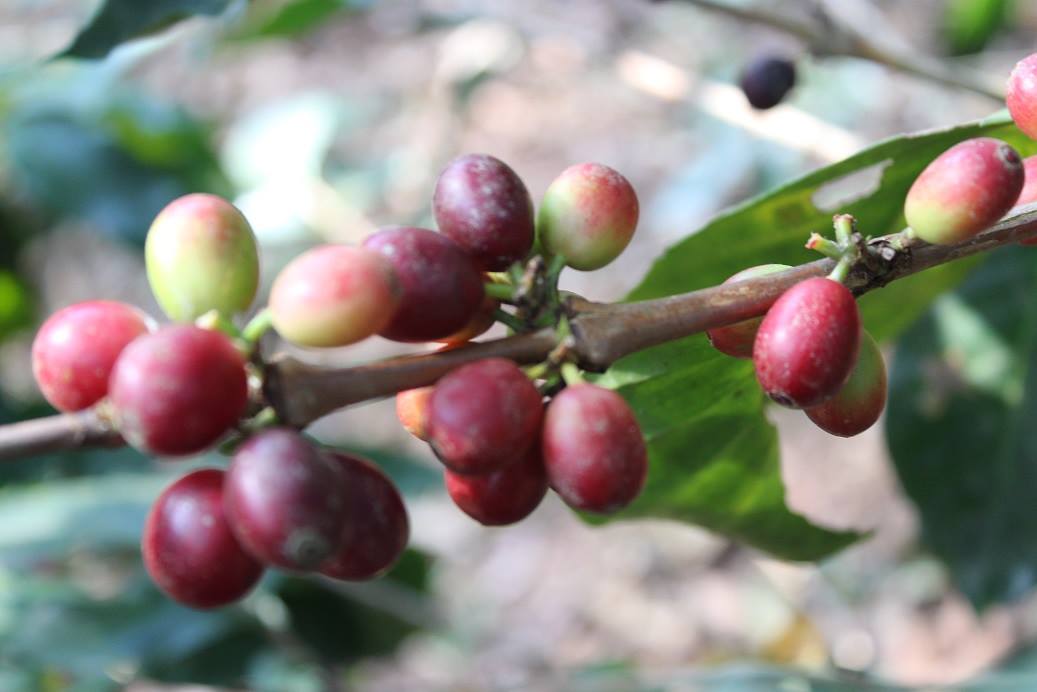
Winemaker Interview
Yamakiri: Lisa Bauer Interview
By Jake Wright, Annex Wine & Beer Buyer/Manager`

Some of my favorite wines here at Annex Wine & Beer come from Lisa Bauer of Yamakiri Wines. A relative newcomer to the winemaking world, Lisa managed by pluck and luck to bring forth distinctive, unique wines that speak vividly of the places they come from and the hands by which they are made. Her wines have been a hit with our customers. At our recent spring wine tasting, they were clear standouts.
I am grateful Lisa chose our store to hawk her wines. That is how I met her, when she walked through the door with a business card, a firm handshake, and a great story. When I tasted her wines, it was clear I was experiencing something special. Some wines are distinctly a reflection of their maker, and Lisa’s are no exception: outspoken, gregarious, and willing to push the edge. Yet the wines (like Lisa) also have depth, a soulful dimension that invites reflection. Camaraderie and reverie in the same glass.
Lisa’s first career was in the world of recycling, first in San Francisco and finally at UC Berkeley. Her wine appreciation evolved over the years, but at the core of her experience is memories of her German father who imported wines from Germany. It was with her father in 1979 that she made her first trip to the Anderson Valley. One destination was Navarro Winery, because they had German varietals like Riesling and made wines like Edelzwicker. Thus Lisa began a love affair with the region where she now lives.
As her own wine palate matured, she found herself appreciating European wines more and more. She sought out smaller wines shops and learned from their proprietors. Then, following her close-to-the-land, DIY spirit, she started to make wine at home. Her first attempts were by the book, with lots of measuring and manipulation. By following the rules, her wines turned out good, if a bit jammy to her taste.
Around this time Lisa acquired some property near Yorkville, high above Highway 128 in southern Mendocino County. In 2009, an abundant year for grapes, a neighbor offered her some free Pinot Noir—second pick—she jumped on it and pulled in a quarter ton. This wine she started with native yeast and very little manipulation, and the results were stunning. She knew she was on to something.
At the bottom of her road, another neighbor had a field of derelict grapes. These grapes—Sauvignon Blanc—were feral, unkempt, and feeding the birds. Her winemaking friends, seeing the quality of the grapes (even in their neglected state), asked Lisa to ask the neighbor if they could pick them. The answer came back no; another ask, another no, and so on. After nearly giving up, Lisa finally asked if she could pick the grapes for herself, and the answer was “yes: but you have to take all of them.”
Now, 2½ acres of grapevines would yield a far larger amount of fruit than she had ever worked with before. A little spreadsheet analysis, a candid call to a custom crush facility, and some good advice from friends convinced her that she could do it. “But I didn’t think I was going to sell it. I thought I was just going to have a whole lot of white wine to give away as gifts.”
When Lisa first tasted the young wine, she thought “this is delicious!” A professional winemaker friend, Alex Crangle, replied “yes, these are really good grapes. And they were abandoned? Can you drink all this? You should sell it.”
“What?! I’ve got to get permits, I’ve got to get licenses, I’ve got to…” But the allure of having a saleable product proved too enticing to refuse. Jumping through the hoops, Lisa was in business.
At this point Alex Crangle became Lisa’s winemaking partner in the emerging adventure. It is a creative partnership, with each bringing balancing strengths and talents, but resting on a shared philosophical bedrock. It began with Lisa sharing what she wanted: a dry wine that tastes of terroir, with nothing added to it, save a small amount of SO2 [sulfur dioxide] at bottling. And she had an idea that she would find older, dry-farmed, ignored vineyards as sources. Then Alex handed her a copy of One Straw Revolution, by Masanobu Fukuoka. She had read it back in her co-op days, but this time she read it “with completely different eyes.”
Fukuoka is known for his natural, no-till, “do-nothing” organic farming techniques, and through this lens Lisa saw the potential in the abandoned, derelict, and marginal vineyards she was discovering. This of course dovetailed into her earlier work ethics: “That’s also my recycling background. That’s ‘waste not, want not.’ If I hear about something not getting used, it pains me.”
So with a nod to Fukuoka, and acknowledging her own land, her Yorkville property that often sits just above the fog line, Yamakiri—Japanese for “foggy mountain”—was born. Under the heading “Found Wine,” their website sums up their approach:
Our intent in making wine is simple: we tend older vineyards, pressing them into gentle use. We seek low-till and dry-farmed vineyards for their depth and low yield. We let native grasses grow because vitality and diversity in the vineyard translate to a distinct expression of terroir and produce wine with a light footprint. We work closely with the land and its stewards in an effort to craft exceptional and unique wines.
Speaking of “found” wine, Alex knew of a few barrels of Syrah that were rejected by one winemaker for being “too smoky.” But Alex and Lisa saw the potential. And, as Lisa observes: “Alex really, really gets how not to mess with wine. He’s patient, and he has a palate that allows him to taste forward and anticipate what it’s going to taste like.” This wine became the stunning “Papillon de Nuit.” Alas, it is truly a unique wine, since the vineyard that it came from has been torn out.* Then came a rosé, a blend of press rosé and red and white, and before Lisa knew it, she had a product line.
Still, it hasn’t all been roses. “A lot of the older vineyards I had my eyes on died last year. They didn’t make it; they couldn’t last through three years of drought.” And while Lisa loves the concentrated flavors older, dry-farmed grapes give, there is a lot more work involved. Nevertheless, she’s looking ahead to planting her own vines on her property, to be dry farmed biodynamically, but thinking forward to warmer and drier conditions that appear to be in store for California.
When I ask Lisa to describe her wines, she demurs. “I’m not good at characterizing in any one way. They’re like children. They all have their own character.”
But I press her, to speak generally if possible.
“They are just at the edge of what the varietal dictates. I like pushing that, expanding that. We pick at lower brix. I don’t like high alcohol, I don’t like anything heavy or jammy. I think it obfuscates the rest of the flavors that are there. Racy, edgy, the complexity of the grape, not anything else.”
I can certainly agree to that, and I think a lot of our customers find that to be true, as well. Finally, I ask her: how does it feel being a small fish in big pond?
Here is where Lisa lights up, the scrappy passion coming through: “It’s clear to me, that in the midst of all the hype and drivel and marketing bull**** driven by these massive companies, there’s still room for human interaction and small producers that have unique products and interesting stories. I think that’s pretty cool. And I never thought I would be on the receiving end of it… I was always one of those people looking for that product. And now I’m making it. How cool is that?”
Very cool. And the proof is in the glass, right under our noses.
In stock:
Yamakiri “Papillon de Nuit” Syrah
Mendocino Ridge 2012
$23.99
*As of this writing, we have seven bottles left to sell before it is gone forever.
Yamakiri “Filligreen Farm” Pinot Noir
Anderson Valley 2014
$27.99
Yamakiri Rosé
Anderson Valley 2014
$18.99
Yamakiri Sauvignon Blanc
Yorkville Highlands 2014
$23.99
For more information, visit: http://www.yamakiriwines.com/
Zero Waste
Is it really possible to live without waste!?
We know that going Zero Waste can seem unattainable in today’s packaged world.
So, we’re listing eight ways to give it a try – why not give it a go?
1. Document your weekly waste – make a list, photograph it, whatever you need to do to understand your actual output.
2. Sort it – food packaging, household products, toiletries, etc. Slowly change one thing a week to reduce the waste in your largest category.
3. Do some research to find out what you can buy in bulk and where you can get necessary refills. Our store offers many bulk items including water!
4. Switch out your waste bins – create a small landfill bin and a large recycling bin. This will help set the stage for the right mindset.
5. Manage what comes into your home – What can you refuse? Receipts, business cards, leaflets etc. Consume less.
6. What can you reuse? The blank side of a paper can become drawing paper for your kids, as your shower is heating up, put a bucket underneath and use it to water your plants, the list goes on. If you have clever methods of reuse, please share them with us!
7. Choose compostable or reusable packaging and containers – e.g. our produce bags and to-go wares are biodegradable and can go straight into your food waste (compost) bin. You can find tin and glass containers at both our markets. Using your own containers and jars is a great way to limit the use of plastic bags for storage and packed meals.
8. What products can you make at home? Things like hummus are easy to make at home. It takes a little foresight to plan for the time. Decide what things are easy and enjoyable to make yourself and work it into your weekly schedule. In addition to cutting down on waste, you’ll probably save money!
Please share your Zero Waste tips with us on Twitter @natygroceryco or Instagram @naturalgroceryco with the hashtag #zerowaste

